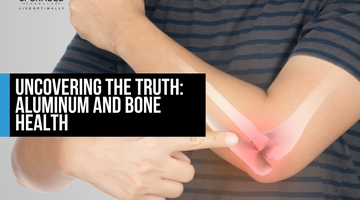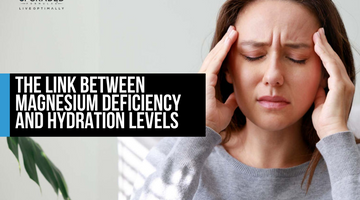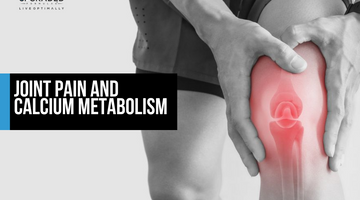bone health
- All
- abdominal pain
- absorption
- acetyl
- achy joints
- acid reflux
- Acid-base balance
- acne
- activated charcoal
- acute toxicity
- adaptogens
- adhd
- adolescent
- adrenal
- adrenal adrenal glands
- adrenal fatigue
- adrenal fatigue stress
- adrenal glands
- adrenal health
- adrenal ratio
- adrenals
- aging
- agitation
- alcohol
- aldosterone
- allergies
- allergy
- alopecia
- aluminum
- alzheimer's
- amino acids
- andropause
- anemia
- anger
- anorexia nervosa
- anti bacterial
- anti fungal
- anti viral
- antiaging
- antifungal
- antimicrobial
- antimony
- antioxidant
- Antioxidant Protection
- antiperspirant
- antiviral
- Anxiety
- anxious
- appetite
- are there side effects to magnesium
- aresenic
- Arginine
- arsenic
- arsenic toxicity
- arterial calcification
- arterial stiffness
- arthritis
- ascorbic acid
- asthma
- Atheroscelrosis
- athletes
- autism
- autoimmunity
- b vitamins
- b1
- b12
- b6
- bacteria
- bacterial infection
- bad habits
- barium
- barium toxicity
- bariyum
- barton scott
- beard
- belly fat
- benefits of magnesium
- benefits of magnesium supplements
- best mineral supplements
- Best self
- best supplements
- bi polar
- bi polar disorder
- bile
- bile production
- Biohacking
- biosynthesis
- biotin
- bipolar disorder
- bismuth
- bitters
- bleeding gums
- blindness
- bloating
- blood cells
- blood circulation
- blood flow
- blood glucose
- blood pressure
- blood sugar
- blood sugar dysregulation
- blood sugar imbalance
- blood sugar insulin
- blue light
- body fat
- body oil
- bone broth
- bone density
- bone health
- bone mineralization
- bones
- Books
- boric acid
- boron
- bowl pattern
- brain fog
- brain health
- breast pain
- breathwork
- bromide
- bromine
- burnout
- ca:k ratio
- ca:mg
- cadm
- cadmium
- cadmium toxicity
- caffeine
- calcification
- calcium
- calcium deficiency
- calcium fluoride
- calcium shell
- calm
- calming
- calories
- camdium
- Can magnesium help with anxiety
- Can magnesium help with panic attacks
- Can magnesium make you tired the next day
- cancer
- candida
- carb metabolism
- carbohydrates
- carbs
- cardiovascular disease
- cardiovascular health
- cartilage
- cataracts
- cell growth
- cell permeability
- cellular hypothyroidism
- cellulite
- cerebral palsy
- ceruloplasmin
- charcoal
- chelation therapy
- Chelator
- chemical toxicity
- chest pain
- children
- chloride
- chlorinated pools
- chlorine
- cholesterol
- choline
- chromium
- chromium deficiency
- chromium toxicity
- chronic fatigue
- chronic inflammation
- chronic pain
- chronic stress
- chronic toxicity
- cigarettes
- circulation
- CKD
- clinical trial
- cobalt
- cobalt toxicity
- coffee enema
- coffee enemas
- cognition
- cognitive function
- cold
- collagen
- collagen production
- Collodial Silver
- concentration
- conjunctivitis
- constipation
- copper
- copper deficiency
- copper dysregulation
- copper toxicity
- core minerals
- coronary heart disease
- coronavirus
- cortisol
- cough
- covid
- covid 19
- cramps
- cramps constipation
- cravings
- cutting hair
- cyanocobalamin
- cystic fibrosis
- cysts
- dairy
- dehydration
- dementia
- dental enamel
- Depression
- detox
- detoxification
- detoxing
- diabetes
- diabetes blood sugar dysregylation
- diarrhea
- diet
- digestion
- digestive enzymes
- digestive health
- digestive issues
- disease prevention
- dizziness
- DNA
- dna synthesis
- does magnesium help with anxiety
- dopamine
- drugs
- dry brushing
- dry eyes
- dry hair
- dry mouth
- dry skin
- dysmenorrhea
- Dyspareunia
- eating better
- Eczema
- EDS
- Ehlers-Danlos Syndrome
- electro magnetic fields
- electrolytes
- electrolytes blood pressure
- emf
- emfs
- emotional
- Emotional health
- emotions
- emunctory organs
- endocrine
- Endometriosis
- endorphins
- enema
- energy
- energy level
- enzyme function
- epilepsy
- erectile dysfunction
- estrogen
- estrogen dominance
- exercise
- exfoliation
- eye health
- eye redness
- faitgue
- families
- FAQ
- fast oxidation
- fast oxidizer
- Fasting
- fat
- fat distribution
- fat management
- fat metabolism
- fatigue
- fe:cu ratio
- fertility
- fever
- Fiber
- fibrocystic breasts
- fibromyalgia
- fluid balance
- fluoride
- fluorine
- Fluorosis
- focus
- folate
- follicle devlopment
- food poison
- forms of magnesium
- fruit
- fulvic acid
- functional labs
- functional testing
- fungal
- fungal infections
- fungus
- gall bladder
- gallbladder
- gallstones
- genes
- genetics
- germs
- ginseng
- glaucoma
- glucagon
- gluconeogenisis
- glucose
- glutathione
- glycogen
- glycolisis
- gold
- good habits
- gout
- grapeseed extract
- grave's disease
- green tea
- grey hair
- greying
- gut brain axis
- gut health
- h.pylori
- habits
- hair
- hair test
- hair analysis
- hair color
- hair health
- hair loss
- hair loss. hair growth
- hair test
- hair test kit
- hair testing
- hair tiss
- hair tissue mineral analysis
- halogens
- hangry
- hashimoto's
- hashimotos
- headaches
- health
- Health and wellness
- hearing loss
- heart
- heart attack
- heart disease
- heart failure
- heart health
- Heart Problems
- heavy metal
- heavy metal detox
- heavy metal exposure
- heavy metal toxicity
- heavy metal toxicity analysis
- heavy metals
- heavy metals quiz
- hemochromatosis
- high blood pressure
- high blood sugar
- high ca:mg ratio
- high calcium:magnesium ratio
- high cholesterol
- high copper
- high estrogen
- high nickel
- histamine
- holistic
- Hormonal Balance
- hormonal imbalances
- hormone
- Hormone Function
- hormone problems
- Hormone Production
- hormone regulation
- hormones
- hot flashes
- how long does it take for magnesium to start working
- how long does magnesium take to work for anxiety
- how much magnesium should I take for anxiety
- htma
- hunger
- hydration
- hydration levels
- hydrochloric acid
- Hydrofluosilicic Acid
- hygiene
- hyperactivity
- hyperglycemia
- hyperlgycemia
- Hyperparathyroidism
- hypertension
- hyperthyroid
- hyperthyroidism
- hypoglycemia
- hypotension
- hypothyroid
- hypothyroidism
- immune health
- immune system
- immunity
- improve sleep
- infection
- infections
- infertility
- inflammation
- injuries
- insomnia
- insulin
- insulin problems
- insulin resistance
- Insulin Sensitivity
- intestines
- iodide
- iodine
- iodine deficiency
- iodine loading test
- iodione patch test
- ionic mimicry
- iron
- iron benefits
- iron deficiency
- iron metabolism
- iron overload
- iron recycling system
- is magnesium good for anxiety
- itchy
- japan
- joint health
- joint pain
- joints
- kidne
- kidney
- kidney disease
- kidney health
- kidneys
- kids
- l carnitine
- L pattern
- L-arginine
- lactation
- lead
- lead exposure
- lead toxicity
- libido
- life and death ratio
- lifestyle ratio
- ligaments
- light
- liquid iodine
- lithium
- live optimally
- liver
- liver cancer
- liver cleanse
- liver detox
- Liver Detoxification
- liver disease
- liver health
- Liver issues
- liver thyroid
- long hauler
- long haulers syndrome
- loose stool
- low blood pressure
- low blood sugar
- Low Calcium
- low immune system
- low magnesium
- low testosterone
- low zinc
- lupus
- lyme
- lymph
- lymphatic system
- m
- maca
- magnesium
- magnesium and sleep
- magnesium benefits
- magnesium burn rate
- magnesium citrate
- magnesium deficiency
- magnesium doses
- magnesium for anxiety
- magnesium for insomnia
- magnesium for sleep
- magnesium glycinate
- magnesium levels
- magnesium supplement
- magnesium supplements
- manganese
- manganese deficiency
- manganese toxicity
- mania
- medical conditions
- medication
- meditation
- melatonin
- memory
- men's health
- men's health bundle
- menopause
- menstrual cramps
- mental clarity
- mental disorder
- mental health
- mental health disorder
- mental health disorders
- mental health hygiene
- mercury
- mercury toxicity
- Metabolic health
- metabolic type
- metabolic typing
- metabolism
- metallothionein
- methionine
- methylcobalamin
- migraines
- mineral antagonists
- mineral balancing
- mineral deficiency
- mineral imabalces
- mineral imbalances
- mineral levels
- mineral rich foods
- mineral synergists
- mineral testing
- minerals
- mold
- mold toxicity
- molybdenum
- Mood
- mood disorders
- mood swing
- most accurate hair analysis testing
- most bioavailable mineral supplements
- most important supplements
- msod
- mthfr
- muscle cramps
- muscle function
- muscle gain
- muscle mass
- muscle pain
- muscle soreness
- muscle spasms
- Muscle Weakness
- Muscles
- myelin
- na:k
- na:k ratio
- na:mg
- na:mg ratio
- nafld
- nail health
- nails
- nano minerals
- nausea
- nerve function
- nerve health
- nerves
- nervous system
- nervous system muscle spasms
- nervousness
- new years
- new years resolutions
- nickel
- nickel toxicity
- nicotine
- night sweats
- nitric oxide
- non alcoholic liver disease
- not living your truth
- numbness
- nutrient deficiencies
- nutrients
- nutrition
- Nutritional deficiencies
- obesity
- oil
- oral health
- organ meats
- osteoarthritis
- osteopenia
- osteoporosis
- overweight
- oxalates
- Oxidative Stress
- oysters
- ozempic
- pain
- pancreatic enzymes
- parasites
- parathyroid hormone
- pathogens
- PCOS
- peak thyroid
- penumonia
- pepsin
- period
- peruvian ginseng
- pH balance
- phosphorus
- phosphorus deficiency
- physical health
- pituitary
- platinum
- PMS
- pnacreas
- podcast
- poly cystic ovarian syndrome
- poly cystic ovaries
- poor diet
- poor sleep
- potassium
- potassium deficiency
- Potassium levels
- potassium thyroid
- potatoes
- Preeclampsia
- pregnancy
- pregnant women
- Premenstrual Syndrome
- probiotics
- processing emotions
- progesterone
- progesterone levels
- Prolactin
- prostate
- protein
- protein metabolism
- psoriasis
- pubic hair
- purines
- pyrdoxine
- pyridoxine
- pyruvate kinase
- quiz
- radiation
- radioactivity
- raynaud's disease
- reasons you can't sleep
- recovery
- red blood cells
- red light therapy
- reduce stress
- rem sleep
- reproductive health
- resolutions
- respiratory
- rest
- retinol
- reverse L pattern
- rheumatoid arthritis
- RNA
- rosacea
- rubidium
- rubidium deficiency
- S7
- sadness
- salt
- sarcopenia
- sauna therapy
- scalp hair
- schizophrenia
- science
- seafood
- seizures
- selenium
- selenium deficiency
- serotonin
- sexual activity
- shilajit
- should magnesium be taken at night
- silica
- skin
- skin disease
- Sleep
- sleep patterns
- sleep problems
- slow metabolism
- slow oxidizer
- smoke
- smoking
- sodium
- sodium deficiency
- sodium fluoride
- sodium:potassium ratio
- sour foods
- Spasms
- sperm health
- spring detox
- step up pattern
- stiffness
- stimulants
- stomach
- stomach acid
- stomach acidity
- strength
- strep
- stress
- stroke
- sugar
- suicide
- sulfur
- supplements
- sweat
- sweating
- swelling
- sympathetic dominance
- sympathetic nervous system
- taking magnesium
- technology
- teenagers
- teeth
- temperature
- temperature regulation
- testicle
- testing
- testosterone
- testosterone upgraded t
- thanksgiving
- Theobromine
- thiamine
- thirst
- thyroid
- thyroid health
- thyroid issues
- tin
- tingling
- tinnitus
- tiredness
- tissue oxygenation
- titanium
- toe fungus
- tongkat ali
- tooth enamel
- total upgrade
- toxicity
- toxicity quiz
- toxins
- trace minerals
- trauma
- Tremors
- tumors
- tungsten
- type 2 diabetes
- type of hair
- types of magnesium
- under arm hair
- uograded zinc
- upgraded boron
- upgraded calcium
- upgraded chromium
- upgraded copper
- upgraded cramp relief
- upgraded detox + debloat
- Upgraded Iodine
- Upgraded Iron
- upgraded magnesium
- upgraded manganese
- upgraded memory
- upgraded metabolism
- upgraded mood
- upgraded potassium
- Upgraded Selenium
- Upgraded Sugar Support
- Upgraded T
- upgraded trace minerals
- upgraded zinc
- uranium
- uric acid
- urine
- vagus nerve
- vanadium
- Vascular Issues
- viral
- viral infections
- virus
- viruses
- vision changes
- vitality ratio
- vitamin c
- vitamin a
- vitamin b1
- vitamin b12
- vitamin b3
- Vitamin B6
- vitamin c
- vitamin d
- vitamin d deficiency
- Vitamin D3
- vitamin e
- vitamin k
- vitamin k2
- vitamin supplements
- vitamins
- vomiting
- water
- water retention
- weakness
- weight gain
- weight loss
- well-being
- what are the benefits of taking magnesium
- what should you not take with magnesium
- When should I take my magnesium
- which form of magnesium is best for anxiety
- white hair
- who can do hair tetsing
- who needs magnesium
- who should not take magnesium
- wilsons disease
- womens hormones
- wound healing
- wounds
- yeast infections
- yoga
- zinc
- Zinc and copper balance
- zinc deficiency
- zinc supplements
- zinc.
- zirconium
Can Lead Toxicity Cause Cognitive Decline?
Lead toxicity is often thought of in context with its damaging effects on our bones, but what about our brains? Research is now uncovering a startling connection between lead exposure and the deterioration of brain health, with a particular focus on the baby boomer generation. This connection draws a line from our industrial past to the cognitive challenges many adults face as they age. Through a comprehensive study, scientists have explored the relationship between the amount of lead in the blood and tissues and declining mental acuity. The findings suggest that for those in their golden years, especially among African American communities, the invisible threat of high lead levels may be quietly shaping their quality of life, including decreased kidney function.
Can Lithium Help Children With Bipolar Disorder?
Lithium often conjures images of heavy-duty batteries or prescription medications, certainly not as a health supplement one might readily give to the pediatric population. But beneath this utilitarian facade lies a surprisingly gentle giant in health and wellness—perfectly safe in reasonable doses and incredibly beneficial for cognitive and physiological functions, especially when early intervention is considered. Proving its value beyond psychiatric care, lithium is pivotal for neurological health, mood stabilization, and even detoxification.
When Is A Good Time To Use Upgraded Trace Minerals?
Did you know putting trace mineral drops in your water can help your body stay healthy? It does a lot more than just add minerals into spotless water. That's right! Our Upgraded Trace Mineral drops give you essential tiny minerals that our bodies need a little bit of. Still, they're necessary to keep our bodies working as a daily supplement. These essential minerals, also known as trace minerals, are vital for maintaining overall health and are divided into significant minerals and small amounts of trace minerals.
Understanding Phosphorus and Tissue Building Dynamics
As we get older, our bodies change in many ways. One significant change is the loss of different tissue types, which can affect how we look, feel, and move. In this blog, we will explore the tissues most affected by aging and what causes this loss in healthy adults. We'll discuss muscle, bone, skin, connective, fat, and nerve tissues and explain how they change as we age. We will also share tips on how to slow down tissue loss and keep our bodies healthy. Finally, we'll highlight the critical role nutrients play in maintaining tissue health, focusing on phosphorus homeostasis, a crucial process that regulates phosphorus levels in the body within the normal range.
How Do We Develop Cadmium Toxicity?
Cadmium toxicity represents a significant public health issue stemming from exposure to elevated concentrations of cadmium. This heavy metal is prevalent in many industrial processes and consumer products. Individuals are exposed to cadmium through several pathways: inhaling polluted air, consuming tainted food or water, and through direct skin contact. After entering the body, cadmium primarily targets and accumulates in the kidneys and liver, causing cadmium poisoning.
How Do You Get Lead Toxicity?
Despite stringent regulations and increased awareness of its hazards, lead remains a pervasive toxic threat in the modern world. Efforts to reduce lead exposure have been significant, yet the element's presence persists across various industries and products, underlining the ongoing challenge of mitigating its risks.
Can Aluminum Affect Our Bone Health?
Aluminum is one of the most prevalent toxic substances in the earth's crust, and its presence in our environment can harm our health. High aluminum content in the body has been linked to harmful effects on the nervous system and is a concern for individuals receiving total parenteral nutrition. It is crucial to be aware of the potential impact of aluminum on bone health and take steps to minimize exposure to this toxic substance.
Can Magnesium Deficiency Affect Hydration?
Have you ever experienced dehydration so acutely that your skin feels parched, your mouth resembles a barren landscape, and your hands and legs begin to resemble a flaky autumn leaf? It's as though every step you take echoes the arid paths of the Sahara Desert.
Is Your Calcium Metabolism Causing Joint Pain?
Pain, an unwelcome experience at any stage of life, often leads us down the path of quick fixes, invariably ending with the temporary relief offered by pain medication. Yet, when it comes to joint pain – a condition notorious for its gradual onset and aggravating persistence – the go-to solution of merely 'popping a pill' falls alarmingly short of providing lasting relief. One commonly used medication for joint pain is acetaminophen, also known as Tylenol®.
How Boric Acid Can Fight Off Yeast Infections?
No one hopes to encounter a yeast infection, and it’s easy to see why. The symptoms—an encompassing discomfort, relentless itchiness, and, for some, considerable pain—are not just physically taxing but also mentally overwhelming. These symptoms can drastically impair one’s ability to concentrate on daily activities and provoke a genuine quest for immediate relief.
Magnesium Benefits You Should Know
In recent years, magnesium has gained attention as a powerhouse nutrient with numerous health benefits. This essential mineral is involved in over 300 biochemical reactions in the body, making it crucial for overall health and well-being. From supporting energy production to promoting heart health, magnesium plays a vital role in many of our body's essential functions.
Can Cadmium Be The Cause of Your Vitamin D Deficiency?
Approximately 1 billion people globally grapple with vitamin D deficiency, and half of the worldwide population suffers from insufficient levels of this crucial nutrient. Notably, 35% of those with this deficiency reside in the United States, highlighting an escalating health concern that remains perplexing. The reasons behind this significant increase in vitamin D-related issues vary; some suggest hormonal imbalances, while others point to reduced sunlight exposure, possibly due to increased sunscreen use.













